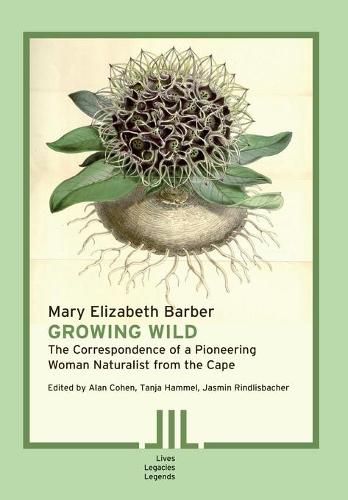Readings Newsletter
Become a Readings Member to make your shopping experience even easier.
Sign in or sign up for free!
You’re not far away from qualifying for FREE standard shipping within Australia
You’ve qualified for FREE standard shipping within Australia
The cart is loading…






This title is printed to order. This book may have been self-published. If so, we cannot guarantee the quality of the content. In the main most books will have gone through the editing process however some may not. We therefore suggest that you be aware of this before ordering this book. If in doubt check either the author or publisher’s details as we are unable to accept any returns unless they are faulty. Please contact us if you have any questions.
Mary Elizabeth Barber (1818-1899), born in Britain, arrived in the Cape Colony in 1820 where she spent the rest of her life as a rolling stone, as she lived in and near Grahamstown, the diamond and gold fields, Pietermaritzburg, Malvern near Durban and on various farms in the eastern part of the Cape Colony. She has been perceived as ‘the most advanced woman of her time’, yet her legacy has attracted relatively little attention. She was the first woman ornithologist in South Africa, one of the first who propagated Darwin’s theory of evolution, an early archaeologist, keen botanist and interested lepidopterist. In her scientific writing, she propagated a new gender order; positioned herself as a feminist avant la lettre without relying on difference models and at the same time made use of genuinely racist argumentation.
This is the first publication of her edited scientific correspondence. The letters - transcribed by Alan Cohen, who has written a number of biographical articles on Barber and her brothers - are primarily addressed to the entomologist Roland Trimen, the director of the Royal Botanic Gardens Kew, London. Today, the letters are housed at the Royal Entomological Society in St Albans. This book also includes a critical introduction by historian Tanja Hammel who has published a number of articles and is about to publish a monograph on Mary Elizabeth Barber.
$9.00 standard shipping within Australia
FREE standard shipping within Australia for orders over $100.00
Express & International shipping calculated at checkout
This title is printed to order. This book may have been self-published. If so, we cannot guarantee the quality of the content. In the main most books will have gone through the editing process however some may not. We therefore suggest that you be aware of this before ordering this book. If in doubt check either the author or publisher’s details as we are unable to accept any returns unless they are faulty. Please contact us if you have any questions.
Mary Elizabeth Barber (1818-1899), born in Britain, arrived in the Cape Colony in 1820 where she spent the rest of her life as a rolling stone, as she lived in and near Grahamstown, the diamond and gold fields, Pietermaritzburg, Malvern near Durban and on various farms in the eastern part of the Cape Colony. She has been perceived as ‘the most advanced woman of her time’, yet her legacy has attracted relatively little attention. She was the first woman ornithologist in South Africa, one of the first who propagated Darwin’s theory of evolution, an early archaeologist, keen botanist and interested lepidopterist. In her scientific writing, she propagated a new gender order; positioned herself as a feminist avant la lettre without relying on difference models and at the same time made use of genuinely racist argumentation.
This is the first publication of her edited scientific correspondence. The letters - transcribed by Alan Cohen, who has written a number of biographical articles on Barber and her brothers - are primarily addressed to the entomologist Roland Trimen, the director of the Royal Botanic Gardens Kew, London. Today, the letters are housed at the Royal Entomological Society in St Albans. This book also includes a critical introduction by historian Tanja Hammel who has published a number of articles and is about to publish a monograph on Mary Elizabeth Barber.